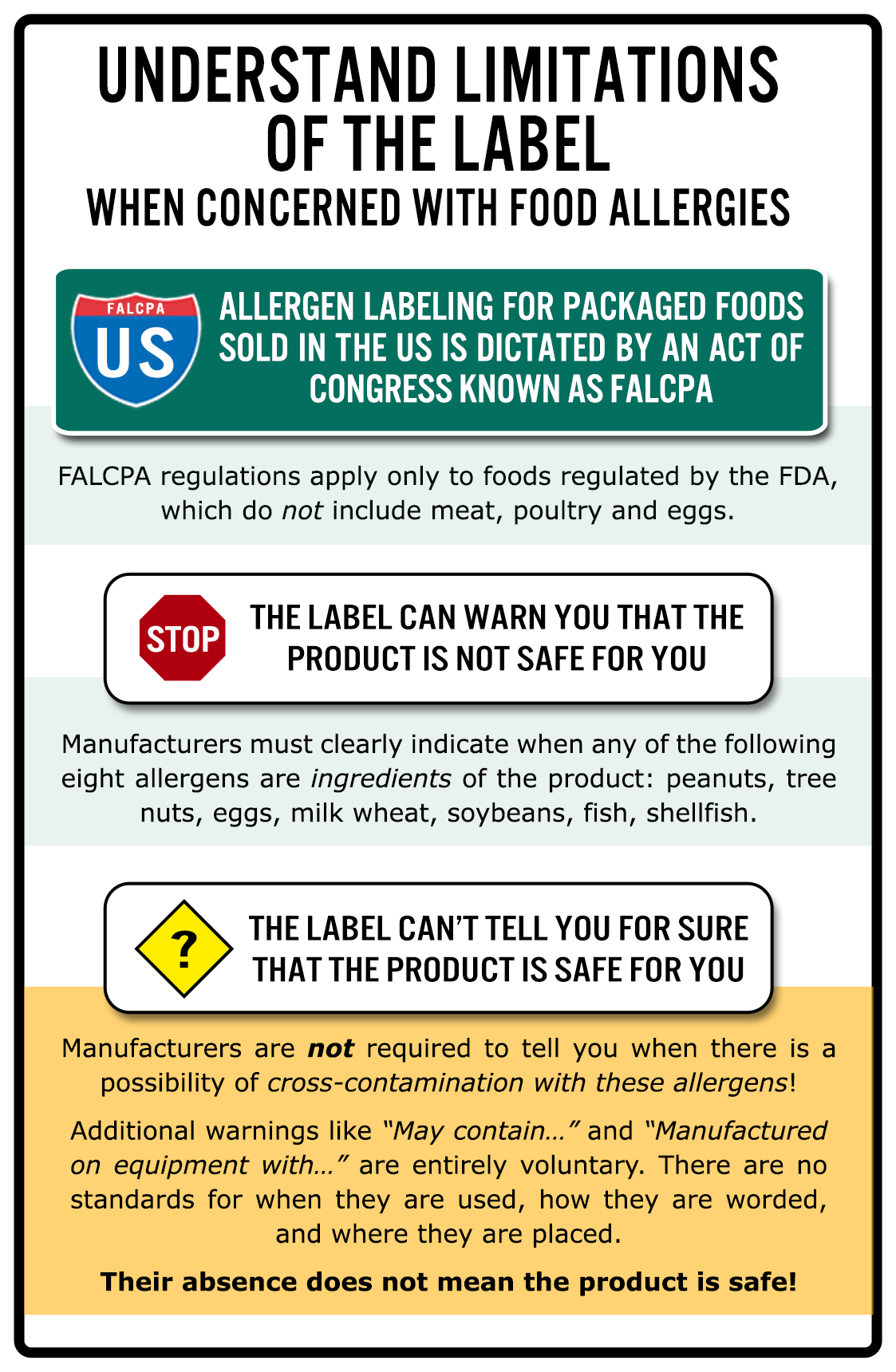Squarely in the “But You Knew That Already” category, a report from the prestigious National Academies of Sciences, Engineering and Medicine urges the food industry to adopt a new labeling regime to better warn consumers of the risk of cross-contact with allergens.
As we often point out to our readers, though manufacturers are required to disclose when one of the “Top-8” allergens is an ingredient of a product, they are not required to issue any warning when there is a danger that product may be contaminated with an allergen due to shared lines or facilities. Warnings like “processed on equipment that also processes tree nuts” are entirely voluntary and are often omitted by companies. [To find out why, read this article.]
“There’s not any real way for allergic consumers to evaluate risk,” said National Academies committee member Stephen Taylor, a University of Nebraska food scientist. He said research raises concern that consumers might simply ignore the precautions, “essentially a form of playing Russian roulette with your food.”
The report urges the Food and Drug Administration to replace precautionary labeling with risk-based warnings. This might involve determining a “safe” level of trace for various allergens and warning when that level is exceeded.
The Grocery Manufacturers Association, a food industry group indicated support for the idea:
Our members are committed to ensuring that food allergic consumers have the information they need on the food label to make informed choices about the safety of the products they purchase. We support the recommendations of the National Academies to establish threshold limits for products that use a ‘may contain’ allergen precautionary statement.
Food allergy is a common and growing problem in the US, with an estimated 1 in 13 children now affected, though the report urges study to determine the actual prevalence in the US and to confirm whether the incidence is indeed rising.
The panel also recommended:
- Better efforts at informing parents about food allergy prevention, such as introducing peanuts earlier in life as determined by the LEAP study;
- Better education for consumers and health professionals to help them discern between true food allergies and intolerances;
- Better training for restaurant workers, first responders, and others to help allergy sufferers avoid their triggers and to learn how and when to administer epinephrine via auto-injector in case of emergency.
According the associated press, FDA spokeswoman Megan McSeveney said the agency was reviewing the report but was “particularly interested” in the science behind the panel’s labeling recommendations.
As an important reminder, here is our graphic describing the limitations of the label in the US:







